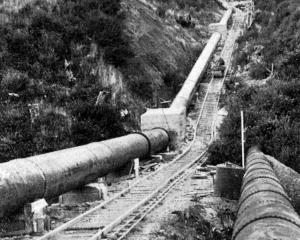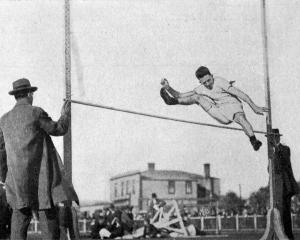
A civic welcome was tendered in the Town Hall yesterday to the Australian association football team, which arrived in Dunedin by the express from the north on Monday night. The attendance was large, representing all classes of sport, and among those present were several members of Parliament.
The Mayor (Mr. J.S. Douglas) said he was sure the citizens joined heartily in extending a welcome to the team. The people of Dunedin, in common with the people throughout the dominion, were lovers of clean sport.
Mr S.S. Myers (president of the Otago Football Association) said that the soccer game was still somewhat young in New Zealand.
They had a visit from a Sydney team in 1905 and this gave them their first great help along. It. made the men more keen, and caused the public to take more interest in the game.
The present visit was one they had been looking forward to, and he congratulated the visitors on their success so far.
Mr H. Harris (representing the ORFU) extended a cordial welcome on behalf of the rugby players.
The Rugby Union recognised that there was room here for both games, and the best of relations had always prevailed between the governing bodies.
Sallies help out-of-work men
Auckland: The free accommodation provided by the Salvation Army for down-and-out sojourners in the city, in a marquee alongside the Arm Workmen's Home is already overtaxed, though it has been in existence only a few days.
Under the canvas roof there have been installed 48 beds of the type on which New Zealand soldiers were accustomed to sleep in wartime camps.
There have been a number of other applicants, whom the Army officers have had been obliged, regretfully, to turn away, but whom they have been able to furnish with free meals in the daytime.
The average number of persons supplied with food at the marquee for the last few days has been 63.
The occupants of the temporary dormitory last evening showed that they were men of the average type of the labouring community, nearly all obviously respectable and "temporally down on their luck", but as yet comfortably clothed.
The regulation of the army making sobriety a sine qua non on the part of the recipients of its aid debars the worst type of ne’er-do-well from admission to the shelter.
About half of the total inmates were seafarers, sailors and firemen. The rest were chiefly farm labourers, builder’s labourers and men accustomed to other forms of casual employment. Perhaps half a dozen in all were educated men who had never used any heavier equipment than a pen.
The story of the men from the country was almost unanimously that they had tracked the provincial roads for weeks in a vain search for something to occupy their hands. "Why, you couldn't buy a job in the country just now," was the dictum of one man, who told the usual dismal tale of persistent search and disheartening refusal.
— ODT, 14.6.1922












